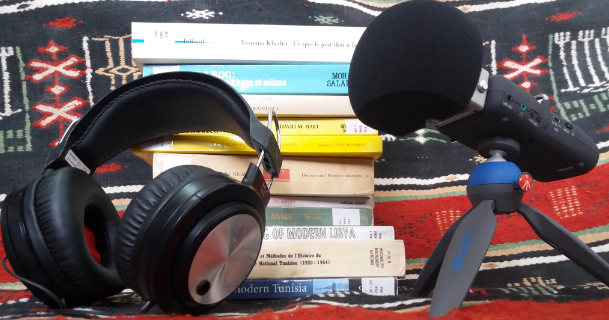
65.5K
Downloads
228
Episodes
Maghrib in Past & Present | Podcasts is a forum in which artists, writers, and scholars from North Africa, the United States, and beyond can present their ongoing and innovative research on and in the Maghrib. The podcasts are based on lectures, live performances, book talks, and interviews across the region. Aiming to project the scientific and cultural dynamism of research in and on North Africa into the classroom, we too hope to reach a wider audience across the globe.
Maghrib in Past & Present | Podcasts is a forum in which artists, writers, and scholars from North Africa, the United States, and beyond can present their ongoing and innovative research on and in the Maghrib. The podcasts are based on lectures, live performances, book talks, and interviews across the region. Aiming to project the scientific and cultural dynamism of research in and on North Africa into the classroom, we too hope to reach a wider audience across the globe.
Episodes
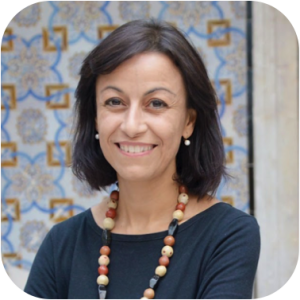
Thursday Oct 27, 2022
Cultural Preservation in the Medina of Tunis: A Conversation with Leila Ben Gacem
Thursday Oct 27, 2022
Thursday Oct 27, 2022
Episode 148: Cultural Preservation in the Medina of Tunis: A Conversation with Leila Ben Gacem
In this podcast, Leila Ben Gacem discusses her projects in the Tunis medina working to preserve physical spaces as well as support, promote and protect local artisans. Her work includes but is not limited to Dar Ben Gacem guest house, Mdiniti (the medina’s first economic interest group), and Dar el Harka (creative industry hub).
Dar Ben Gacem encapsulates her work on physical space in the medina. Starting in 2007 Ben Gacem began the process of renovating a dilapidated, historic building. During this first project, the renovations faced many difficulties including ambiguous governmental regulations and of course a revolution after which social dynamics shifted significantly. Finally in 2013, the first Dar Ben Gacem opened as a boutique hotel in the medina of Tunis, followed by a second Dar renovation project shortly thereafter. Together these two hotels have opened their doors to countless guests from all over the world and hosted events with artisans, chefs and startups.
Mdiniti, a more recent effort, is an economic initiative that represents 17 different start-ups, artisans and businesses that all have the same goal: revitalizing and celebrating the culture of the Tunis medina. As individuals, these representatives would not have much sway, but as a conglomerate, their collective voices can influence change at a higher level.
This work on reviving cultural heritage is not isolated. Ben Gacem explains that the problems her organizations face are a product of more complex issues, including how the increase in the high school dropout rate trickles down and affects efforts to revitalize the medina. By addressing these hurdles as a part of her programming with Dar el Harka, a coworking space that encourages student involvement and provides study spaces, Ben Gacem ends up revitalizing more than just spaces in the medina.
This podcast sheds light on a thoughtful and diligent leader in the medina of Tunis. Leila Ben Gacem’s initiatives prove that efforts are forever being made, not without a struggle, to preserve the history and culture of Tunis.
Leila Ben-Gacem is a social entrepreneur, Ashoka Fellow, founder of Blue Fish, a consultancy that designs and implements projects to improve the economic dynamics of heritage to improve its resilience. Leila also founded Dar el Harka, a creative industry hub; Dar Ben Gacem, a Boutique Hotel and cultural catalyst in the medina of Tunis. Leila is also a founder and president of Mdinti, Medina’s first economic interest group, and member of the organization committee of UltraMirage El Djerid. Leila is an elected city council member at Beni Khalled. Before switching careers, Leila held various positions at multinational corporations and has a BS in Biomedical Engineering.
This episode is part of « Cultural Heritage Conservation in the Maghrib » lecture series organized by the Centre d'Études Maghrébines à Tunis (CEMAT). It was recorded at Dar Ben Gacem on Friday April 15, 2022 with Neely Egan, the CEMAT Cultural History of Tourism Fellow.
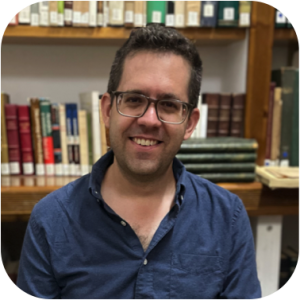
Thursday Oct 06, 2022
A History of Franco-Muslim Education in Morocco and in Northwest Africa
Thursday Oct 06, 2022
Thursday Oct 06, 2022
Episode 147: A History of Franco-Muslim Education in Morocco and in Northwest Africa
Between the 1850s and 1950s, colonial schools called médersas combined elements of French and Islamic educational traditions. First created in Algeria in 1850, the schools spread to the West African colonies of Senegal, French Soudan (today Mali), and Mauritania. The place of Morocco in this history is the subject of this discussion. In the 1910s, early in the protectorate period, the French established two “collèges musulmans,” the Collège Moulay Idriss in Fes and the Collège Moulay Youssef in Rabat. These were similar to the médersas in their curriculum and institutional framework; several of their directors had experience running médersas in Algeria and Senegal. In a field that remains deeply structured by national borders and by the notion of a “Saharan Divide” between North and West Africa, this research reveals close connections between societies usually considered in isolation.
Dr. Samuel Anderson is currently a Visiting Assistant Professor of History at Pomona College in Claremont, California. He received a PhD in African History from the University of California, Los Angeles, in 2018. His research focuses on education, race, and religion in northwest African Muslim societies under colonial rule. His current project examines the médersas, so-called “Franco-Muslim” schools, that combined Islamic and European curricula in a French effort to colonize Islamic schooling and the Muslim elite in the Maghrib and West Africa. He has conducted research on this topic in Algeria, Mauritania, Senegal, France, and now Morocco, with the support of the American Institute for Maghrib Studies (AIMS), the Council of American Overseas Research Centers (CAORC), and other organizations. Portions of this project have been published in the journals Islamic Africa and History in Africa.
This episode was recorded on July 22st, 2022 at the Tangier American Legation Institute for Moroccan Studies (TALIM).
Posted by Hayet Lansari, Librarian, Outreach Coordinator, Content Curator (CEMA).
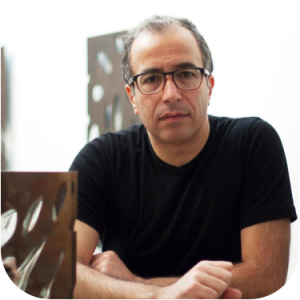
Thursday Sep 29, 2022
The Worlds of Safia Farhat
Thursday Sep 29, 2022
Thursday Sep 29, 2022
In this podcast, the visual artist Slim Gomri speaks about his role in preserving the artistic legacy of Tunisian fibre artist Safia Farhat (1924-2004). Having worked for a number of years at the Abdallah and Safia Farhat Foundation in Radès, near Tunis, Gomri has been involved in the programming of both the Centre des arts vivants and the Safia Farhat Museum in Radès. Established by Safia Farhat in 1982, the Centre des arts vivants offers residencies for artists and workshops in calligraphy, ceramics, textiles, photography, etching, and painting. The Safia Farhat Museum, which opened in 2016, displays Farhat's works, hosts a group exhibition once a year, and organizes film screenings.
Slim Gomri is a visual artist based in Tunis. His photobook Vie de pêcheurs (2021) is inspired by the artist’s contact with the world of fishermen in different towns along the Tunisian coast. He is currently preparing a film on the fibre artist Safia Farhat, one of the most recognizable artists in Tunisian modern art.
This podcast is part of the Modern Art in the Maghrib series and was recorded on September 22, 2022, by the Centre d'Études Maghrébines à Tunis (CEMAT).
We thank Dr. Jonathan Glasser, Cultural Anthropologist at au College of William & Mary, for his istikhbar in sika on viola for the introduction and conclusion of this podcast.
Edited and Posted by: Hayet Lansari, Librarian, Outreach Coordinator, Content Curator (CEMA).
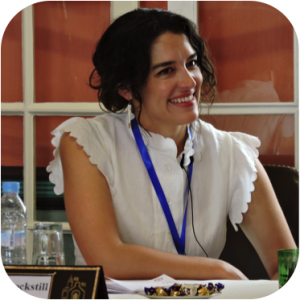
Thursday Sep 22, 2022
Landscape and Identity in Medieval Morocco
Thursday Sep 22, 2022
Thursday Sep 22, 2022
Episode 145: Landscape and Identity in Medieval Morocco
In this podcast, Dr. Abbey Stockstill asks the question why does Marrakesh look the way that it does? The 'Red City' is the topic of her forthcoming book, in which she discusses the medieval city’s relationship with its founding dynasties, the local landscape, and Berber politics in the eleventh and twelfth centuries. As the notion of what it meant to be 'Berber' was being defined, the city of Marrakesh emerged as a metropolis that actively engaged the multivalent identities of Almoravids and Almohad dynasties. Rather than taking individual monuments in isolation, Dr. Stockstill’s work looks at how those monuments worked with each other and the local landscape to create a stage for these identities to be expressed. What emerges is a city that is both paradigmatic in its structure, yet innovative in its social and historical context.
Dr. Abbey Stockstill received her Ph.D. in the History of Art & Architecture from Harvard University (2018), and is currently an assistant professor of Islamic art and architecture at Southern Methodist University in Dallas, Texas. She has contributed essays to academic journals such as Muqarnas and Hésperis-Tamuda, as well as to a number of edited volumes. She is also an assistant editor for the International Journal of Islamic Architecture, and serves on various committees within the International Center for Medieval Art and the Historians of Islamic Art Association.
This episode was recorded on July 21st, 2022 at the Tangier American Legation Institute for Moroccan Studies (TALIM).
Posted by Hayet Lansari, Librarian, Outreach Coordinator, Content Curator (CEMA).

Thursday Jun 02, 2022
Contemporary Art in Tunisia
Thursday Jun 02, 2022
Thursday Jun 02, 2022
Episode 144: Contemporary Art in Tunisia
As part of the AIMS Contemporary Art Fellowship, Ignacio Villalón conducted research into the contemporary art scene in Tunisia, exploring private and public cultural institutions, sources of funding, questions of language, and ongoing challenges. This project culminated in a report, written for academic and non-academic audiences alike. In this podcast, Villalón summarises the main findings of his research, focusing on a few select phenomena in the Tunisian art scene.
Ignacio Villalón is a writer, researcher, and journalist with a focus on politics and culture in the Mediterranean region. He received his Master's degree in History from the École des Hautes Études en Sciences Sociales, for which he conducted research on emigration (hijra) in early 20th century Algeria. As AIMS Contemporary Arts Fellow, he carried out research on the arts scene in Tunisia. He has published articles in "Le Quotidien d'Oran" and "Africa is a Country." Ignacio is currently CAORC Social Sciences Fellow.
This interview was recorded on May 13, 2022, via Zoom and led by Katarzyna Falecka, Lecturer in Art History at Newcastle University and Project Coordinator at the Centre d'Études Maghrébines à Tunis (CEMAT)
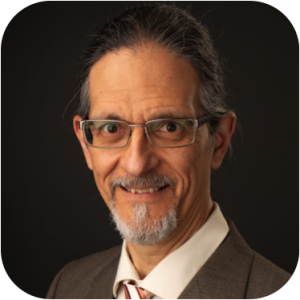
Thursday May 19, 2022
The ”Lush Garden” of Andalusian Music
Thursday May 19, 2022
Thursday May 19, 2022
Episode 143: The "Lush Garden" of Andalusian Music
In this podcast, Dr. Carl Davila explores the Andalusian music tradition of Morocco, known as al-ala, through the written song collections, such as the famous Kunnash al-Ha'ik. By examining the literary record, embodied in around 40 handwritten manuscripts found in libraries across Europe and North Africa, we can come to understand the evolution of the repertoire over the past two and a half centuries. Of special interest here is a little-known work called al-Rawdat al-Ghanna' fi Usul al-Ghina' ("The Lush Garden for the Principles of Song'') of which there are just three surviving copies — including one in the Bibliothèque Nationale in Rabat. In this podcast we will explore such questions as: Who wrote this work, and when? What is actually in it? And perhaps most significant: Where does it fit in the history of the written repertoire of Andalusian music?
Dr. Carl Davila holds a PhD in Arabic Studies from Yale University (2006). He lived in Fez off and on for nearly three years in the early 2000s and has visited Morocco frequently since then. Being the first scholar to write extensively in English on the Andalusian music in Morocco, he has published two monographs and numerous articles on the cultural, historical and literary aspects of this grand musical tradition. At the moment, he is developing a book series with E.J. Brill that will present English translations and commentary for all eleven nubas in the modern and historical repertoires. He is currently Associate Professor of History at the State University of New York in Brockport.
This episode was recorded on April 21st, 2022 at the Tangier American Legation Institute for Moroccan Studies (TALIM).
To see related slides, please visit our website : www.themaghribpodcast.com
Posted by Hayet Lansari, Librarian, Outreach Coordinator, Content Curator (CEMA).
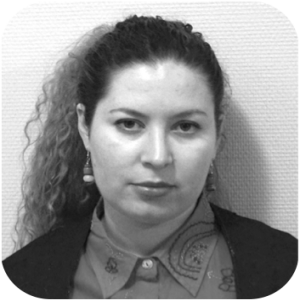
Sunday May 15, 2022
Entretien avec Farah Khelil au sujet de son projet Effet de Serre.
Sunday May 15, 2022
Sunday May 15, 2022
Episode 142: Entretien avec Farah Khelil au sujet de son projet Effet de Serre
Dans ce podcast, Farah Khelil parle de l’inspiration et du raisonnement derrière le projet Effet de Serre et revient sur la dualité et la tension entre tradition et modernité à travers une analogie botanique originale. D’une part, ce projet évoque le palmier, arbre symbolique de la tradition coranique, d’autre part l’eucalyptus, symbole de l’empreinte des colons. D’après elle, la plupart des milieux naturels apparaissent en réalité dessinés par l’action humaine.
Avec Effet de Serre, Khelil sort des structures d’exposition et réinvente une autre expérience de rencontre avec ses œuvres, s’interrogeant sur le rôle de l’artiste et la place du public. Partant de la relation existante entre les palmiers et les serres botaniques qui les ont souvent accueillis dans des visées d’acclimatation ou d’ornementation elle décide dans une esthétique du don de financer la restauration de la serre du Parc du Belvédère où elle met en place l’installation. Ceci en espérant qu’au-delà de la présentation de ses recherches et de la publication elle redynamise cette zone du parc.
Farah Khelil est née en 1980 à Carthage, en Tunisie. Après des études aux Beaux-Arts de Tunis, elle s’installe en France où elle obtient un doctorat de l’École des arts de la Sorbonne en 2014. Artiste essentiellement conceptuelle, elle recompose des textes, des images et des objets dans des agencements protéiformes qui en reconfigurent le sens. Empruntant des techniques et des matériaux divers, ses œuvres mettent en forme une réflexion sur le rapport de l’art à l’écriture, au langage et à l’information.
Cet entretien, enregistré le 07 avril 2022 au Centre d'Études Maghrébines à Tunis (CEMAT) a été mené par Ignacio Villalón, boursier en histoire de l’art contemporain au CEMAT.
Nous remercions notre ami Ignacio Villalón, étudiant en master à l'EHESS, pour sa prestation à la guitare pour l'introduction et la conclusion de ce podcast.
Montage: Hayet Lansari, Bibliothécaire / Chargée de la diffusion des activités scientifiques (CEMA).
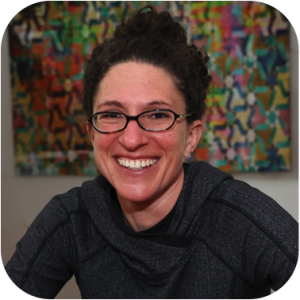
Thursday May 05, 2022
State-Building and Women in Tunisia
Thursday May 05, 2022
Thursday May 05, 2022
Episode 141: State-Building and Women in Tunisia
In this conversation, Amy Kallander reflects on how the work of Tunisian scholars on trade unions, feminism, and patriarchy informed her approach to thinking critically about state-building in the first decades after independence. Placing ideas about gender and women’s rights in relation to broader debates about cultural decolonization, transnational political movements, pan-Arab and Maghribi intellectual projects and the power dynamics of the Cold War era offers insights on thinking intersectionally and local articulations of global phenomena. Drawing from her new book Tunisia’s Modern Woman: Nation-Building and State Feminism in the Global 1960s she gestures towards the importance of women in the realms of diplomacy, economic development, and intellectual life, as well as in social and cultural domains. As a way of placing women into standard histories of the era, gender analysis points towards the necessity of considering class, regional, and other disparities.
Amy Kallander is Associate Professor of History and Affiliated faculty with Women’s and Gender Studies at Syracuse University, NY, USA. A scholar of early modern and modern Middle East history, she is the author of Tunisia’s Modern Woman: Nation-Building and State Feminism in the Global 1960s (Cambridge 2021) and Women, Gender, and the Palace Household in Ottoman Tunisia (Texas 2013). These works place gender in relation to social history and political power, population politics, fashion, consumerism, and love. She has authored articles and book chapters exploring the role of social media in Tunisian social movements, postcolonial and transnational relations with France, has appeared in the International Journal of Middle East Studies, Middle East Report Online, Arab Media & Society, French Politics, Culture and Society and Nouri Gana ed. The Tunisian Revolution: Contexts, Architects, Prospects (Edinburgh 2013).
This interview was recorded on March 24, 2022, via Zoom by the Centre d'Études Maghrébines à Tunis (CEMAT) and was led by CEMAT Director, Dr Laryssa Chomiak.
Nous remercions Mr. Souheib Zallazi, (Étudiant au CFT, Tunisie) et Mr. Malek Saadani (Étudiant à l'ULT, Tunisie), pour leur interprétation de « al-Ardh Ardhi » de Sabri Mesbah, pour l'introduction et la conclusion de ce podcast. Souheib au mélodica et Malek à la guitare.
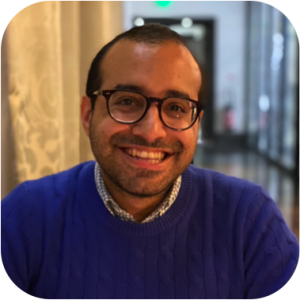
Thursday Apr 21, 2022
Thursday Apr 21, 2022
Episode 140: Modern Art and Architecture in Morocco in the Aftershock of the 1960 Agadir Earthquake
On February 29, 1960, an earthquake leveled much of the southern Moroccan coastal city of Agadir. Over the next decade, a new Agadir would be built in an avant-garde brutalist architectural style, representing a concrete example of Morocco’s newly independent future. And yet, this future is haunted by the trauma and violence of the past, by way of both the earthquake as well as colonialism. The literal and figurative aftershocks of the earthquake would go on to impact, in ways that are often obscured, various facets of life all around Morocco and beyond, especially with regards to visual and material culture. This raises the questions about the entanglements of human actors with non-human forces when it comes to histories of modernism, decolonization, and nation-building.
Riad Kherdeen studies global modern art and architecture, with a focus on the region of West Asia/Middle East and North Africa (MENA). He is working on a doctoral dissertation project on modernist art and architecture in Morocco related to the Agadir earthquake of 1960 titled “Spectral Modernisms: Decolonial Aesthetics and Haunting in the Aftershock of Morocco’s Agadir Earthquake (1960)." His interests fall within three main clusters of study: the first is in comparative and planetary modernisms via postcolonial studies and critical theory; the second is in the study of perception, including aesthetics, phenomenology, psychoanalytic theory, cognitive psychology, and neuroscience; and the third is in materialisms, ranging from the micro scale with technical studies of visual and material cultural production, including techniques, processes, technologies, and materials/conservation science, to the macro scale including Marxist/historical materialism, new materialism, ecocriticism, and systems theory. Riad holds a B.A. in Art History and a minor in Chemistry from New York University (2013) and an M.A. in the History of Art and Archaeology from the Institute of Fine Arts (2016). His M.A. thesis “Masdar City: Oriental City of the Twenty-First Century,” advised by Jean-Louis Cohen, looks at the urban design and architecture of Masdar City in the United Arab Emirates as a new iteration of the “Orientalized” city within a genealogy of recent urbanism in the Arab world, one that still succumbs to the imagined representations of the region created by European imperialism yet embraces those stereotypes to construct new narratives about its people and its nascent nation. Previously, Riad has held positions at the Museum of Modern Art, the Metropolitan Museum of Art, the Whitney Museum of American Art, and the Art Genome Project at Artsy.
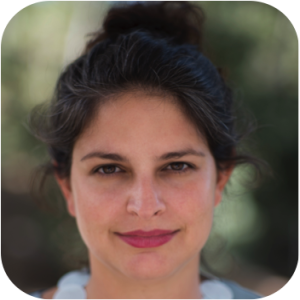
Thursday Apr 14, 2022
Artistic Flows From the Levant to North Africa in the 1970s
Thursday Apr 14, 2022
Thursday Apr 14, 2022
Episode 139: Artistic Flows From the Levant to North Africa in the 1970s
The International Art Exhibition for Palestine opened in Beirut in 1978 with nearly 200 artists from 30 countries. For over a decade, Rasha Salti and Kristine Khouri led a research project to uncover the history of this and other art collections/museums built in solidarity with political causes, and map networks of artists, intellectuals and activists that extended from these projects. The Moroccan chapter revealed links and practices from publications like Souffles, to proximity of the PLO’s office to writers and artists, and the work and interventions by artists bringing work to public space and out of the galleries.
Kristine Khouri is a researcher whose background is in Arab cultural history and art history. Her interests began in the history of arts circulation, exhibition and infrastructure in the Middle East and North Africa as well as archives, practices in and with them, and knowledge dissemination. In the past few years, she has been focused on critical engagement with digital archives, and issues that emerge from them including rights, access, and language. She co-led, with Rasha Salti, the Past Disquiet research project unearthing the histories of exhibitions and museums in exile, and transnational solidarity in the arts in the 1970s. Kristine is currently a board member of the Arab Image Foundation in Beirut.
This episode is part of the Modern Art in the Maghrib series, and was recorded on March 3, 2022, via Zoom. This is part of a larger Council of American Overseas Research Centers program organized by the Centre d'Études Maghrébines à Tunis (CEMAT) and financed by the Andrew Mellon Foundation that seeks to collaborate with local institutions for a greater awareness of art historical research in North Africa.
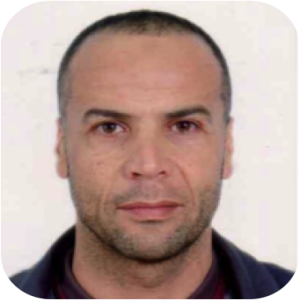
Thursday Apr 07, 2022
رمي النفيات بالوسط الحضري: اغتراب في المجال ام عوز في التحضر؟
Thursday Apr 07, 2022
Thursday Apr 07, 2022
Episode 138: رمي النفيات بالوسط الحضري: اغتراب في المجال ام عوز في التحضر؟
في إطار التحقيق الميداني الأنثروبولوجي، الخاص بالنفايات المنزلية والتحولات الحضرية، اختار الاستاذ مختار مروفل العمل على تحليل الذهنيات والكيفيات ذات الصلة بالبقايا والآثار، وهذا حتى نفهم الكيفية التي على أساسها ينموا ويتطور المجتمع. إن الذات القمامية -Homo Détritus-، البنت الشرعية لاقتصاد السوق إنما تحيا على الاستهلاك والرمي المزمنين، اللذين غدا بمثابة الرياضة اليومية التي يمارسها الإنسان المعاصر بنهم وشره شديدين، الذات القمامية الجزائرية لا تشذ عن هذا المعنى، لذلك اظهر الاستاذ مروفل وبشكل متزامن من خلال الملاحظات المحكية كيفيات وأنماط تنظيم المجموعات الملاَحظَة، لعلاقاتها مع المتبقيات الناتجة عن الأنشطة سواء كانت إنتاجية أم بيولوجية، علاقة نجدها مسجلة ضمن التململ في الانتماء إلى الفضاء العمومي وأيضا في التذمر والاستياء المعبر عنه، عبر الرمي العفوي للنفايات الذي غدا أسلوبا من أساليب الاحتجاج على إدارة الشأن العام
مختار مروفل أستاذ التعليم العالي بقسم العلوم الاجتماعية والأنثروبولوجية، جامعة وهران 2. يرأس فرقة بحث بمخبر الفلسفة، العلوم والتنمية. منشوراته العلمية، "في التغير المناخي وأثره علىالنظام البيئي: قراءة تقيمية لأهم ما ورد في التقرير السنوي للمعهد الفرنسي للعلاقات الدولية حولالمناخ سنة 2016". مجلة حوليات جامعة الجزائر. وبحث بعنوان "عن الوحشنة في العلم الاستعماريبالجزائر: قراءة في المسار ونقد للطروحات والأفكار" مجلة أفاق وأفكار 2020. بحث آخر "على هامشدورية العالم الإسلامي والمتوسطي: مجتمعات الجبل والإصلاح الديني بأرض الإسلام، قراءة تحليلية فيالتحول الديني بالجزائر: مجلة المواقف للبحوث والدراسات في المجتمع.2021، الذات القمامية والتحولالبيئي: نحو قراءة نقدية للنفايات وللجدل التقنوا ثقافي الخاص بالمعالجة والتعامل مع البواقي، مجلةالمستقبل العربي العدد 513 تشرين الثاني / نوفمبر 2021
تم تسجيل هذه الحلقة في 15 فبراير 2022 في اطار اليوم الدراسي "التحديات الاجتماعية للبيئة" الذي نظمه مركز الدراسات المغاربية في الجزائر و وحدة البحث في العلوم الاجتماعية و الصحة
. الاستاذ كريم وراس, استاذ في جامعة وهران 2 ونائب مدير في مركز الدراسات المغاربية في الجزائر,ادار المناقشة
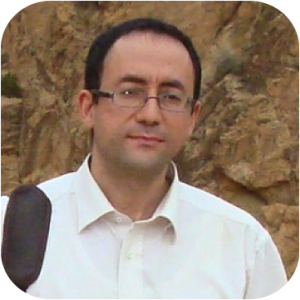
Thursday Mar 31, 2022
Entretien avec Dr. Farid Rahal
Thursday Mar 31, 2022
Thursday Mar 31, 2022
Episode 137: Entretien avec Dr. Farid Rahal
Dans ce podcast, Dr. Farid Rahal présente une communication portant sur la pollution atmosphérique, un phénomène considéré par le législateur algérien comme un risque majeur, en raison de son impact fortement négatif sur la santé des citoyens et sur l’environnement. Pour évaluer ce risque, le système APOMOS (Air Pollution Monitoring System) a été développé ce qui a permis de mesurer en continu, les concentrations des principaux polluants atmosphériques. Une chaine de modélisation a été également développé en vue d'établir des simulations et des prévisions de la qualité de l’air en milieu urbain.
Dr. Farid Rahal est Maitre de conférences au Département d'Architecture de l'Université des Sciences et Technologies d'Oran Mohamed Boudiaf en Algérie. Il enseigne aux étudiants en architecture, la modélisation et la géomatique. Ses activités de recherche sont menées au laboratoire des sciences, de la technologie et du génie des procédés au sein de la même université.
L'axe principal de ses recherches concerne la qualité de l'air. Il a travaillé sur les inventaires d'émissions, la modélisation météorologique, la modélisation de la dispersion des polluants et la surveillance de la qualité de l'air par le biais de capteurs électrochimiques. Il a également travaillé sur les risques urbains et environnementaux ainsi que sur le traitement et l’analyse des images satellitaires afin d’évaluer l'étalement urbain et la nature des sols. Il s’agit notamment des sols argileux à fort potentiel de retrait-gonflement.
Dr Farid Rahal est l'auteur de plusieurs articles sur l’architecture paramétrique.
Cet épisode a été enregistré le 15 février 2022 à l’occasion de la journée d'étude Les enjeux sociaux de l’environnement, organisée par l'Unité de Recherche en Sciences Sociales et Santé (GRAS) et le Centre d'Études Maghrébines en Algérie (CEMA). Pr. Karim Ouaras, Université d’Oran 2 / CEMA a modéré le débat.
pour consulter les diaporamas associés à ce podcast veuillez visiter notre site web: www.themaghribpodcats.com

Thursday Mar 24, 2022
Hygiène publique et citoyenneté : un lien indissociable
Thursday Mar 24, 2022
Thursday Mar 24, 2022
Episode 136: Hygiène publique et citoyenneté : un lien indissociable
Dans ce Podcast, Pr. Mohamed Mebtoul, Professeur de sociologie à l’Université d’Oran 2 et directeur-fondateur du Groupe de Recherche en Anthropologie de la Santé (GRAS) devenue Unité de recherche en sciences sociales et santé, revient sur le sujet de l’hygiène publique et son rapport avec la citoyenneté en examinant les sens attribués à l’absence récurrente de l’hygiène publique dans la majorité des villes algériennes. Pour étayer son propos, il a mis en lumière la banalisation de la saleté dans les espaces sociaux (quartiers, recoins des rues, marchés, etc.) qui sont d’abord caractérisés par leur matérialité, leurs objets contenus, qui, loin d’être neutres, obligent à opérer le lien avec les dynamiques sociales et politiques qui se déploient dans ces différents milieux (Remy, 2015).
Cet épisode a été enregistré le 15 février 2022 à l’occasion de la journée d'étude Les enjeux sociaux de l’environnement, organisée par l'Unité de Recherche en Sciences Sociales et Santé (GRAS) et le Centre d'Études Maghrébines en Algérie (CEMA). Pr. Karim Ouaras, Université d’Oran 2 / CEMA a modéré le débat.
Nous remercions infiniment Mohammed Boukhoudmi d'avoir interprété un morceau musical de Elli Mektoub Mektoub, pour les besoins de ce podcast.
Réalisation et montage: Hayet Lansari, Bibliothécaire / Chargée de la diffusion des activités scientifiques (CEMA).
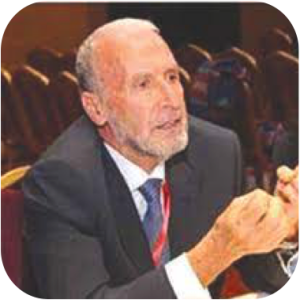
Sunday Mar 20, 2022
Sunday Mar 20, 2022
Episode 135: Durabilité et résilience urbaines face aux risques majeurs: outils et méthodes
Dans ce podcast, Pr. Mahi Tabet-Aoul aborde la question de l'environnement en mettant l'accent sur les outils et les méthodes nécessaires pour la durabilité et la résilience urbaines face aux risques majeurs. La résilience urbaine consiste, selon lui, à optimiser le fonctionnement des structures et réseaux du système urbain pour permettre une gestion urbaine durable et une réponse optimale aux impacts des risques majeurs. Il s’agit, à partir d’un diagnostic objectif de l’état actuel du système urbain, d’identifier de nouvelles mesures et actions permettant d’améliorer les interactions et les synergies entre les structures et réseaux urbains. La résilience sert aussi à amortir les perturbations et dysfonctionnements qui risquent d’altérer la pérennité du système urbain, tout en minimisant les impacts des risques majeurs sur la population urbaine, les biens et les infrastructures de base, et assurant la continuité des activités socioéconomiques urbaines.
Pr. Mahi Tabet-Aoul est diplômé des Universités de Strasbourg et de Paris-Sorbonne (DEA en Géophysique). Il est ingénieur des Télécommunications (École Normale Sup-Télécom, Paris) et de la Météorologie (École Normale Sup-Météo, Paris). Il s’est spécialisé dans le domaine de l’atmosphère (Universités de Fort-Collins et Miami USA). Pr. Mahi Tabet-Aoul a été le premier directeur de l'Institut Hydrométéorologique de Formation et de Recherches d’Oran. Il a participé à de nombreuses rencontres internationales, notamment en qualité d'expert invité au colloque sur la Planète Terres (Paris- 1989) et aux Conférences des parties de la Convention Cadre sur le Changement Climatique (2001-2006). Il est membre du groupe intergouvernemental sur l’évolution du climat (IPCC/GIEC) et est l'auteur de plusieurs communications scientifiques. Il a présidé des groupes de travail de l’Organisation Mondiale de la Météorologie (OMM).
Professeur associé à l’Université de Laval (Québec-Canada) en 2008, il est co-auteur de la publication Méditerra 2009 (Sciences Po, Plan Bleu et Ciheam-Paris). Il a été chercheur au CRASC et coordonnateur de la revue Société, environnement et Santé.
Il est également l’auteur de plusieurs ouvrages sur le changement climatique, l’environnement, l’agriculture, le développement durable et le bioclimat au Maghreb.
Cet épisode a été enregistré le 15 février 2022 à l’occasion de la journée d'étude Les enjeux sociaux de l’environnement, organisée par l'Unité de Recherche en Sciences Sociales et Santé (GRAS) et le Centre d'Études Maghrébines en Algérie(CEMA). Les mots d’introduction de cette journée d'étude ont été prononcés par Pr. Karim Ouaras, Université d’Oran 2/CEMA, Pr. Mohamed Mebtoul, GRAS et Mr. Mahi Tabet-Aoul, GRAS.
Nous remercions Dr. Jonathan Glasser, anthropologue culturel au College of William & Mary, pour son istikhbar in sika à l'alto pour l'introduction et la conclusion de ce podcast.
Réalisation et montage: Hayet Lansari, Bibliothécaire / Chargée de la diffusion des activités scientifiques (CEMA).

Monday Feb 14, 2022
Monday Feb 14, 2022
Episode 134: En hommage à feu Omar Carlier (Décédé le 22 octobre 2021):
Dans ce podcast, feu Omar Carlier, Professeur émérite d’Histoire à l’Université Paris VII et Chercheur associé au Centre de Recherche en Anthropologie Sociale et Culturelle, Professeur à l’Université d’Oran de 1969 à 1993, a exposé pour la première fois son travail de recherche en cours, dédié à l’histoire de l’Hypokhâgne d’Alger, un moment clé de la formation d’une élite intellectuelle en situation coloniale (1929-1961). L’Hypokhâgne est une Classe de Lettres supérieures au Lycée Émir Abdelkader (Ex. Bugeaud) à Alger. Son intérêt, qu’il dit tardif, pour cet objet est né après avoir découvert que son amie et collègue Fanny Colonna est passée par l’Hypokhâgne d’Alger (1953-1954). Peu de temps après, il découvrira que d’autres chercheurs et écrivains de renom sont issus de cette Classe de Lettres supérieures à l’instar d’Albert Camus (Promotion 1932-1933), Jacques Derrida (Promotion 1948-1949), Fatima Zohra Imalayene, Alias Assia Djebar (Promotion 1953-1954), Claude Cohen Tannoudji et bien d’autres.
Pr. Carlier est revenu, avec beaucoup de détails, sur les choix méthodologiques qui étaient les siens pour interroger cet objet atypique en expliquant pourquoi et comment il s’est servi de l’Hypokhâgne d’Alger comme une entrée d’analyse de la société algérienne en situation coloniale. En filigrane de son exposé, il a retracé l’évolution du champ culturel algérien, surtout dans ses expressions littéraire, artistique et musicale, et l’histoire de quelques figures emblématiques ayant marqué ce champ culturel.
Toute une communauté de savoir, unie par de solides liens de sociabilité, est née de cette Hypokhâgne d’Alger. A l’occasion de cette conférence, Pr. Carlier a invité les jeunes chercheurs à explorer ces objets/expériences méconnus qui ont été à l’origine d’une élite intellectuelle qui a marqué d’une empreinte indélébile l’histoire de l’Algérie.
Pr. Carlier a restitué les résultats de son travail de recherche, ou peut-être une partie de ces résultats, dans une contribution intitulée « La khâgne d’Alger et le devenir d’une élite intellectuelle » parue en 2019 dans Mélanges en l’honneur de Gilbert Meynier (Éd. L’Harmattan), un ouvrage dirigé par Pr. Tahar Khalfoune.
Les débats de cette conférence, qui fait date, ont été modérés par feu Hadj Miliani (décédé le 02 juillet 2021), Professeur de littérature à l’Université de Mostaganem, Chercheur associé au Centre de Recherche en Anthropologie Sociale et Culturelle à Oran, fondateur et animateur du Ciné-Pop d'Oran (1973-1987), membre du conseil scientifique du CEMA, membre du collectif de la revue Voix-Multiples (1981-1989), Commissaire du Festival du raï (2006-2007), responsable du pôle Ouest de l'École Doctorale Algéro-Française de Français (2004-2012) et responsable de la partie algérienne du réseau Langue Française et Expressions Francophones.
Musique de Mohamed Iguerbouchene: Senif isevragh felakh.
Réalisation et montage: Hayet Lansari, Bibliothécaire / Chargée de la diffusion des activités scientifiques (CEMA).

Thursday Jan 27, 2022
Museums, Cultural Infrastructures, and Multiple Publics in Morocco
Thursday Jan 27, 2022
Thursday Jan 27, 2022
Episode 133: Museums, Cultural Infrastructures, and Multiple Publics in Morocco
In this podcast, Katarzyna Pieprzak discusses her work on museums and experimental museology in Morocco. She proposes an expanded understanding of the museum, attending equally to physical museum sites, the ephemeral outdoor museum, as well as to the “discursive museum”. In doing so, Pieprzak explores how individuals and communities envision the role of museums in their personal and collective lives. What are their expectations towards cultural institutions, both existing and imagined ones? Pieprzak also sketches out her new book project titled Poetics of Repair: Artistic Afterlives of Modernist Mass Housing in the Maghreb, which argues that art sees, builds and imagines colonial-era mass housing and its residents in a way that architectural history, political science and sociology can not. For Pieprzak, art has the potential to trigger unexpected sensations and attachments, and in so doing, illuminate the connective fibers and relationships between structures, histories and the people they shape. She calls this “a poetics of repair”: an art practice that enjoins, connects or simply brings closer together broken relations, separated elements and severed histories.
Katarzyna Pieprzak is Professor of French and Comparative Literature and currently Chair of Arabic Studies at Williams College. Her research and teaching have focused on North African museums, modern and contemporary visual art, 20th-century Francophone literature, and art’s engagements with colonial modernist architecture (from bidonvilles to grand ensembles). She is the author of Imagined Museums: Art and Modernity in Postcolonial Morocco (University of Minnesota, 2010), co-editor of Land and Landscape in Francographic Literature, and co-editor of a special issue of Critical Interventions entitled Africanity and North Africa. Her current book in progress, Poetics of Repair: Artistic Afterlives of Modernist Mass Housing in the Maghreb, explores how visual, literary and performance-based art illuminates the connective fibers and missing relationships between built housing environments, histories and the people they shape, in Casablanca, Algiers and Nanterre. The book argues that this work is a poetics of repair: a de-colonial art practice that enjoins, connects or simply brings closer together broken relations, separated elements and severed histories.
This episode is part of the Modern Art in the Maghrib series, and was recorded on January 22, 2022, via zoom. This is part of a larger Council of American Overseas Research Centers program, organized by the Centre d'Études Maghrébines à Tunis (CEMAT) and financed by the Andrew Mellon Foundation that seeks to collaborate with local institutions for a greater awareness of art historical research in north Africa.
To see related slides please visit our website: www.themaghribpodcast.com.
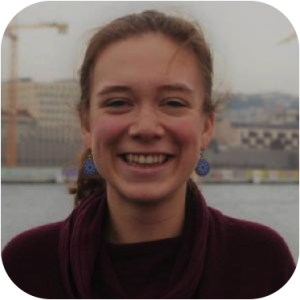
Thursday Jan 20, 2022
Queens Of Words: Moroccan Women Zajal Poets
Thursday Jan 20, 2022
Thursday Jan 20, 2022
Episode 132: Queens Of Words: Moroccan Women Zajal Poets
In this podcast, Catherine Cartier speaks about Queens Of Words: Moroccan Women Zajal Poets. Zajal, which flourished in 14th century Andalusia, is a genre of poetry composed in spoken Arabic—Moroccan Arabic/Darija in this case. The genre reemerged in postcolonial Morocco, when it was largely published in newspapers. The recent history of zajal may appear male dominated: the 1992 edition of Afaq, the Journal of the Moroccan Writer’s Union, highlighted modern zajal poetry but included only one poem by a woman poet. But many Moroccan women who write zajal today look to history for inspiration, often citing Kharbousha, an iconic figure who resisted oppressive rulers through her poetry, as an example they seek to emulate. Beyond this, Facebook and TikTok, provide a rich and accessible realm for sharing poetry. Her research, grounded in interviews with zajalat (women zajal poets) and close readings of their work, examines how and why Moroccan women write zajal poetry today, and what their experiences on and off the page can tell us about Darija as a literary language.
Catherine Cartier received her B.A. in History and Arab Studies in May 2020 from Davidson College (USA). Prior to Fulbright, she worked as an investigative intern and consultant at the Center for Advanced Defense Study and reported as an independent journalist from Jordan, Lebanon, Morocco, and Tajikistan. Her Fulbright research examines zajal poetry written by Moroccan women.
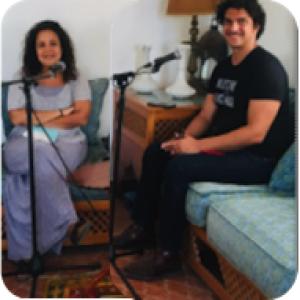
Thursday Sep 30, 2021
Roots And Traces Of Contemporary Cultural Life In Tangier
Thursday Sep 30, 2021
Thursday Sep 30, 2021
Episode 131: Roots And Traces Of Contemporary Cultural Life In Tangier
In this discussion at Youmein 2021: Roots and Traces, anthropologist George Bajalia and journalist Aida Alami explore the roots and traces of contemporary cultural life in Tangier, especially as they relate to northern Morocco’s border regions.
From questions of diversity and difference to the roots of present debates around representation, responsibility, and justice, Youmein 2021: Roots and Traces was an open-ended artistic inquiry into how the structures of our past have shaped our current moment. The traces of this past appear in unexpected places, both institutionally and in the social milieu from which we develop artistic reflections. Uncomfortable inequities and realities sit adjacent to the rise of powerful populist and progressive movements worldwide. Since Youmein began in 2014, xenophobia, isolationism, and neo-imperialism have grown simultaneously with new forms of solidarities and ways of being in-common. How will these movements leave their traces in our shifting social orders, and how will they transform, sediment, and root themselves differently? So far, each edition of the Youmein Festival has taken on themes speaking to Tangier as a space of both border and bridge: al-barzakh, crisis, imitation, limit(s), and desire. This year, those themes became the fertile ground on which we will reconvene and dig deep into what has come before and make choices about where we want to go next. After a year of isolated reflections, and alongside the Bicentennial of the Tangier-American Legation, Youmein invited the artists, speakers, and the public to critically reflect on the view from Tangier, and the cultures, peoples, and conditions which compose it.
As a part of the 2021 Youmein Festival, Alami and Bajalia reflected on Tangier and its myths, past and present, and alternative cultural histories and present realities in this corner of the Strait of Gibraltar. From Maalem Abdellah Gourd and the renovation of his home in Tangier medina to the role of the Tangier American Legation Museum in the city, they share thoughts how different flows of people through the city, categorized differently as migrants, immigrants, “ex-pats,” and artists, intersect and overlap.
George Bajalia is an anthropologist (Ph.D., Columbia University), Assistant Professor at Wesleyan University, and theatre director based between Morocco and New York. He is the co-founder of the annual Youmein Creative Media Festival in Tangier, Morocco and the Northwestern University in Qatar Creative Media Festival. His work has been supported by the CAORC-Mellon Mediterranean Research Fellowship, the American Institute of Maghrib Studies Long-Term Fellowship, and the Fulbright Foundation, and he is a Fellow of the Tangier- American Legation Institute for Moroccan Studies.
Aida Alami is a Moroccan freelance journalist who’s frequently on the road, reporting from North Africa, France, the Caribbean, and more recently, Senegal. She regularly contributes to the New York Times, and her work has also been published by the New York Review of Books, The Financial Times, and Foreign Policy. She earned her bachelor’s degree in media studies at Hunter College and her master’s degree in journalism at Columbia University. She mainly covers migration, human rights, religion, politics and racism. These days, Aida spends a lot of time in France, where she is directing a documentary feature on antiracism activists and police violence.
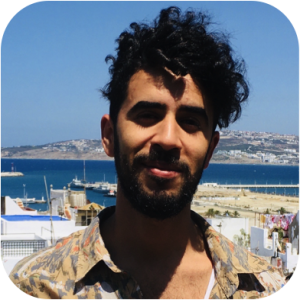
Thursday Sep 09, 2021
Thursday Sep 09, 2021
Episode 130: Writing on Kingdom Walls: Practices, Narratives and Visual Politics of Graffiti and Street Art in Jordan and Morocco
Soufiane’s focus is a comparative study on cultural practices and narratives related to art production and its entanglement with resistance and visual politics in North Africa and the Middle East. By working on Morocco and Jordan, he mainly focus on wall-writings, street art, and graffiti in order to understand what wall expressions do, the extent to which they have a particularly political place in society, and how they relate to socio-political transformations.
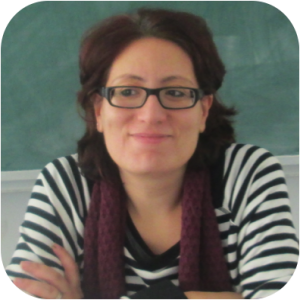
Thursday Jul 29, 2021
Thursday Jul 29, 2021
Episode 129: L’école de médecine de Kairouan dans l’histoire de la médecine arabe médiévale : repères historiographiques
Dans ce podcast, qui prend la forme d’un retour historiographique, Dr. Meyssa Ben Saad présente l’école médicale de Kairouan, ses fondateurs, ses innovations et les traces qu’elle a laissé dans la longue histoire de la médecine.
De la médecine arabe médiévale, l’histoire a surtout retenu des grands noms comme Rāzī (865-925) et Ibn Sīnā (980-1037), ou encore Abul Qāsim al-Zahrāwī (940-1013), représentant respectivement l’école dite de Bagdad, et celle de Cordoue (Al-Andalus). Mais un autre centre culturel avait prospéré au IX-Xe siècle dans une autre sphère de l’empire arabo-islamique, à Kairouan, alors capitale de l’Ifriqya et grand pôle de rayonnement scientifique et culturel du IXe siècle. Plusieurs médecins y ont exercé, notamment Isḥāq Ibn ‘Imrān (IX-Xe), et ses disciples Isḥāq Ibn Sulaymān (832-932), et Ibn al-Jazzār (898-980), dont les œuvres ont circulé et ont influencé autant le monde arabe que l’Europe latine, mais dont certaines se sont faites appropriées par leur traducteur latin, Constantin l’Africain (1020-1087).
Meyssa BEN Saad est Docteur en Histoire des sciences spécialisée en Histoire de la zoologie arabe médiévale. Elle est chercheuse associé au Labo SPHère CNRS UMR 7219, Université Paris Diderot, et Coordinatrice du Pôle Recherche & Innovation à l’Université Mahmoud el Materi, Tunis.
Cet épisode a été enregistré entre Oran et Tunis le 3 Juin 2021 et s'inscrit dans le cadre du cycle des conférences “Santé et humanités au Maghreb” de l'American Institute for Maghrib Studies (AIMS), organisé par le Centre d'Études Maghrébines en Algérie (CEMA) et le Centre d'Études Maghrébines à Tunis (CEMAT) en étroite collaboration avec Tangier American Legation Institute for Moroccan Studies (TALIM). Professeur Marouane Ben Miled, Enseignant-chercheur à l'Ecole nationale d'Ingénieurs de Tunis (ENIT), a modéré la conférence et le débat.
